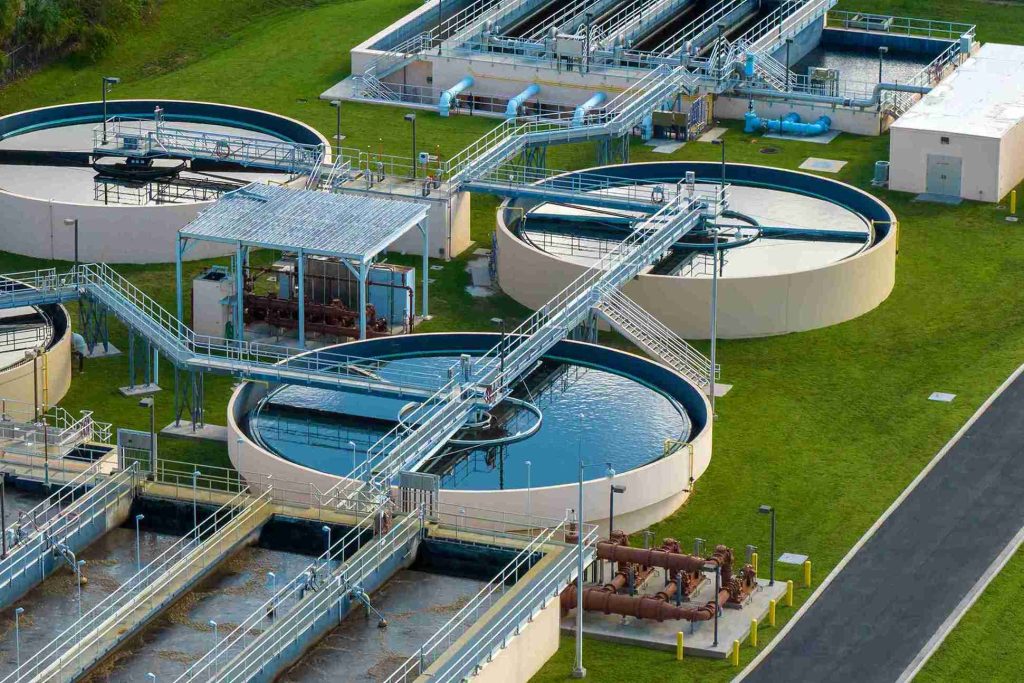When we talk about industrial innovation, flashy headlines tend to spotlight AI, robotics, or electrification. But behind every forward-thinking factory or sustainable facility lies a quieter, often overlooked powerhouse: wastewater treatment. Once seen as a back-end utility or mere compliance requirement, water management has evolved into a strategic pillar of modern industry. Today, it’s a key driver of operational resilience, environmental stewardship, and long-term cost efficiency. With water scarcity becoming a global concern and regulations tightening across regions, the ability to treat, recycle, and recover water is no longer optional—it’s a competitive advantage. Forward-looking enterprises are now investing in advanced treatment technologies not just to meet standards, but to future-proof their operations. What happens after the rinse cycle isn’t just maintenance—it’s leadership.
Wastewater: The Hidden Engine Behind Industrial Sustainability
When people think of innovation in manufacturing or urban development, their minds jump to buzzwords like automation, AI, and sleek digital dashboards. Wastewater? Hardly ever makes the cut. But quietly, behind factory walls and municipal plants, water treatment is evolving into a game-changing pillar of sustainable growth. As environmental regulations tighten and water scarcity drives up costs, industries can no longer afford to treat wastewater as a mere byproduct. It’s becoming a valuable resource stream. From food processors reclaiming water for reuse, to textile factories recovering chemicals and heat, the shift is clear: wastewater is now an untapped opportunity. An opportunity to cut operational costs, recover hidden resources, and future-proof business models. In a world where every drop counts, smart water management isn’t just eco-friendly — it’s economically essential. This is where innovation meets necessity, turning what was once “waste” into pure business advantage.
From Compliance to Competitive Edge: Why Treatment Systems Matter More Than Ever
Modern wastewater management has moved far beyond simple filtration. Today, it’s all about smart, integrated systems that blend mechanical separation, biological treatment, and even AI-driven monitoring to maximize water reuse and efficiency. This isn’t just about ticking regulatory boxes anymore. These advanced solutions help companies future-proof their operations, reduce environmental impact, and minimize business risks linked to resource scarcity. Just as industries have embraced intelligent upgrades—think smart HVAC systems or home EV chargers—water treatment is evolving too, becoming a responsive, data-driven backbone of sustainable manufacturing. It’s no longer a passive, behind-the-scenes process. Instead, it’s a strategic investment that boosts competitiveness, optimizes resources, and enhances long-term resilience. In the race toward greener, leaner operations, smart water management is becoming a key differentiator—helping businesses not only comply, but actually thrive.

What Modern Wastewater Treatment Looks Like Today
In this evolving landscape, The integrated wastewater treatment equipment is the unsung hero of modern wastewater management. From basic pre-treatment screens that catch debris to advanced sludge dewatering systems squeezing out every last drop, smart machinery ensures compliance, consistency, and resource recovery—all with minimal fuss. But today’s leading-edge setups go beyond mechanical functions. They’re digital, connected, and future-ready. Real-time data logging, remote monitoring, and AI-assisted controls are becoming standard, giving operators unprecedented visibility and agility. Plus, with modular, scalable designs, these systems flex effortlessly as facilities grow or face seasonal production shifts. This adaptability isn’t just convenient—it’s strategic. By investing in intelligent, upgradable equipment, businesses can stay ahead of tightening regulations, optimize costs, and build operational resilience. In short, smart machines are no longer just “supporting” the process—they’re driving a new era of competitive, sustainable water management.
Smart Equipment, Quiet Impact: How Technology Powers Recovery
Professionals across industries are catching on to a simple truth: clean water out means smarter processes within. Effective wastewater management isn’t just about hitting discharge targets anymore. It’s about reclaiming heat, reducing chemical use, cutting water bills, and enhancing overall process efficiency. The benefits ripple through the entire operation—quietly but powerfully. Interestingly, the most impactful upgrades aren’t always loud or flashy. No big reveal, no viral buzz. Instead, these systems work quietly in the background, constantly treating, monitoring, and fine-tuning. They adapt in real time, ensuring production stays smooth, compliant, and cost-efficient. In a world where margins are tight and sustainability is non-negotiable, these “silent operators” are becoming key players in long-term business success. Simply put, smart wastewater management is no longer optional—it’s a strategic edge that keeps companies flowing, literally and figuratively.
Building Resilience Through Smarter Water Strategy
For manufacturers, investing in the right water treatment equipment is no longer just about regulatory compliance. It’s a strategic move to enhance ESG performance, attract environmentally conscious clients, and unlock substantial long-term cost savings. In today’s climate, where water represents both a rising operational risk and a valuable resource, how businesses manage it directly impacts their sustainability credentials. The choices made today—smart systems, efficient processes—will define how “future-ready” a company looks tomorrow. This trend isn’t isolated. Similar shifts are visible across other industries too. Take residential energy: home EV chargers, once seen as a luxury, have now become a must-have symbol of clean infrastructure and forward-thinking readiness. For manufacturers, embracing intelligent water management signals the same commitment—a proactive stance toward efficiency, resilience, and responsible growth in a resource-constrained future.

Conclusion
Wastewater treatment is no longer just a behind-the-scenes, technical necessity. It’s quickly becoming a strategic pillar of modern industrial operations. With resource scarcity intensifying and environmental regulations growing stricter, companies can no longer afford to treat water management as an afterthought. The ability to manage water wisely—recovering resources, reducing waste, and optimizing reuse—will be a defining factor that separates industry leaders from laggards. Forward-thinking businesses understand this shift. For them, treating wastewater isn’t just about compliance—it’s about future-proofing their operations, enhancing ESG credentials, and strengthening resilience against supply chain and environmental risks. In essence, they’re not just cleaning water; they’re actively building a cleaner, more efficient, and more sustainable future. In an era where every drop matters, water-smart strategies are fast becoming a core competitive advantage.